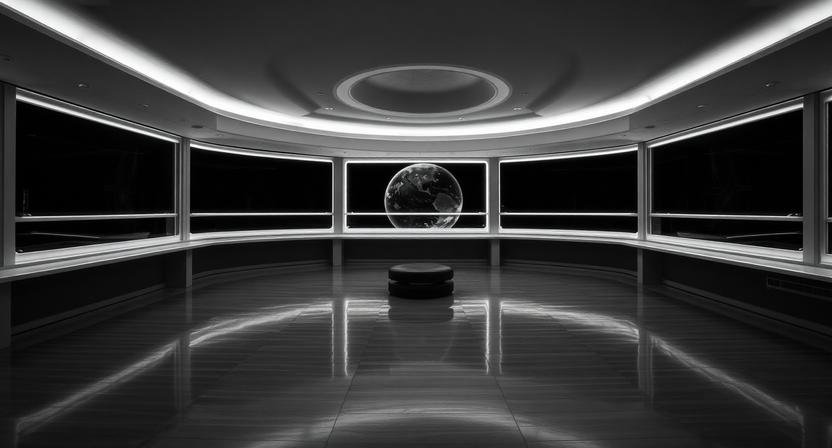
Re-Evaluating Our Worth As Human Beings
Many of us are struggling to understand our worth outside the economic engine of society. The message is rarely stated outright, but it saturates the air: to be more, we must not only do more, but also buy more. This assumption fuels countless conversations—at work, at home, and inside our own heads.
I am guilty of this, too. AI has accelerated the tempo of professional life, and I catch myself turning that tempo into a test of relevance. I ask colleagues whether they now use it to generate content, manage social media campaigns, or prospect for donors. I have been shown tools that “strategize,” producing plans and roadmaps for organizations in minutes. I keep wondering where these plans and roadmaps ultimately lead—or, more pointedly, what they train us to believe about the kind of human being we have to become in order to matter.
This past weekend, I picked up Philosophical Leisure (2007) by Dr. Annette Holba, and she reminded me—uncomfortably—that we have already arrived at a destination. Lasch (1979) described this place as a culture of narcissism. Arnett (1994) framed it as a kind of existential homelessness. In such a place, Holba argues, “human communication is enveloped with a general sense of malaise that is the result of an emerging lack of the interhuman or authentic interest in the other” (p. 21).
One corollary of that condition is that our worth gets measured—quietly, relentlessly—in productivity. Reflecting on this (and spurred by Holba’s work), I can see that I still subscribe, at least partially, to a familiar Western equation: productivity equals value.
While I no longer check work emails on the weekend, I still feel a concern in my body that I am somehow derelict in my professional duties. How dare I enjoy myself? How dare I be a philosopher, when clearly there are more important things to do—master the latest tools, find the next corporate sponsor, issue the next press release, create the next post, stay visible, stay useful.
It isn’t only that I’m anxious about productivity. I have also sabotaged my personal life in an effort to demonstrate commitment to organizational causes. In recognizing that my positionality as a CIS white man has afforded me an unbelievable amount of privilege and opportunity, I find myself struggling to feel I can offer anything of value outside my output—as if I must keep producing to justify my place in any space.
I do not say any of this to elicit pity. I’m saying it because I’m coming to grips with a stark fact. I have built a life in which “work” is the main space where I feel legible.
I do not really make friends, but my ability to merge the personal with the professional has enabled me to create the illusion of a life full of meaning. As a philosopher and poet in my heart, the extent to which I have sacrificed hopes and dreams in an effort to apologize for my existence is exhausting.
Identity Matters
Race, gender, class, and history shape what happens to us and our experience of reality. However, when identity becomes the only story available—when it replaces curiosity, tenderness, and complexity—we reduce one another. We turn living people into categories and then act surprised when our relationships feel thin.
Certainly, the fact that I am a CIS white man is an important fact of my existence, and it has influenced my experience as a human being. However, I am also a man who sometimes cries when he hears beautiful music, or while making egg sandwiches.
I am a man who enjoys walking in nature, running down country roads on Friday afternoons, watching The Rockford Files at midnight, and missing the days when my sons were little—when they could both be held in my arms at the same time. I am also a man who loves his parents and cannot imagine a life, much less a single day, without them. I make ridiculous jokes, laugh when someone farts, and I miss my grandmother.
I am all these things and so much more (and sometimes less), which means I can only assume every human on this planet possesses forms of worth and texture that are uniquely theirs. Perhaps there is an opportunity—an opening, a space—for us to acknowledge the multiplicities of our lives without trying to reduce, eliminate, or monetize their meaning.
Not everything meaningful is measurable, monetized, or shareable, because life is not a spectacle. It is an inward journey we live together in public spaces on a planet that is literally moving through outer space right now.
In a world that keeps trying to sell us the next “optimized” solution, maybe the starting point is simpler. What do you and I actually need?
If we do not yet know how to answer that question, I think that is just fine. Let’s start in a space where we know nothing, because those spaces often offer the greatest opportunities.
References
- Arnett, R. C. (1994). Existential homelessness: A contemporary case for dialogue. In R. Anderson, K. N. Cissna, & R. C. Arnett (Eds.), The reach of dialogue: Confirmation, voice, and community (pp. 229–245). Cresskill, NJ: Hampton Press.
- Holba, A. M. (2007). Philosophical leisure: Recuperation and the care of the self. Lanham, MD: Lexington Books.
- Lasch, C. (1979). The culture of narcissism: American life in an age of diminishing expectations. New York, NY: W. W. Norton.
About Spaciology
Spaciology is not abstract theory; rather, it is a practice you can feel.
- Inside: Pause, breathe, notice.
- Outside: Design rooms, rituals, and agendas that slow the spin and invite care.
- Between us: Make dialogue a place where different truths can live together long enough to teach something.
Ultimately, leadership is the art of making space for what’s important (for everyone) and letting that clarity shape the next step. When we change the spaces from which we lead, our strategies change with them.




